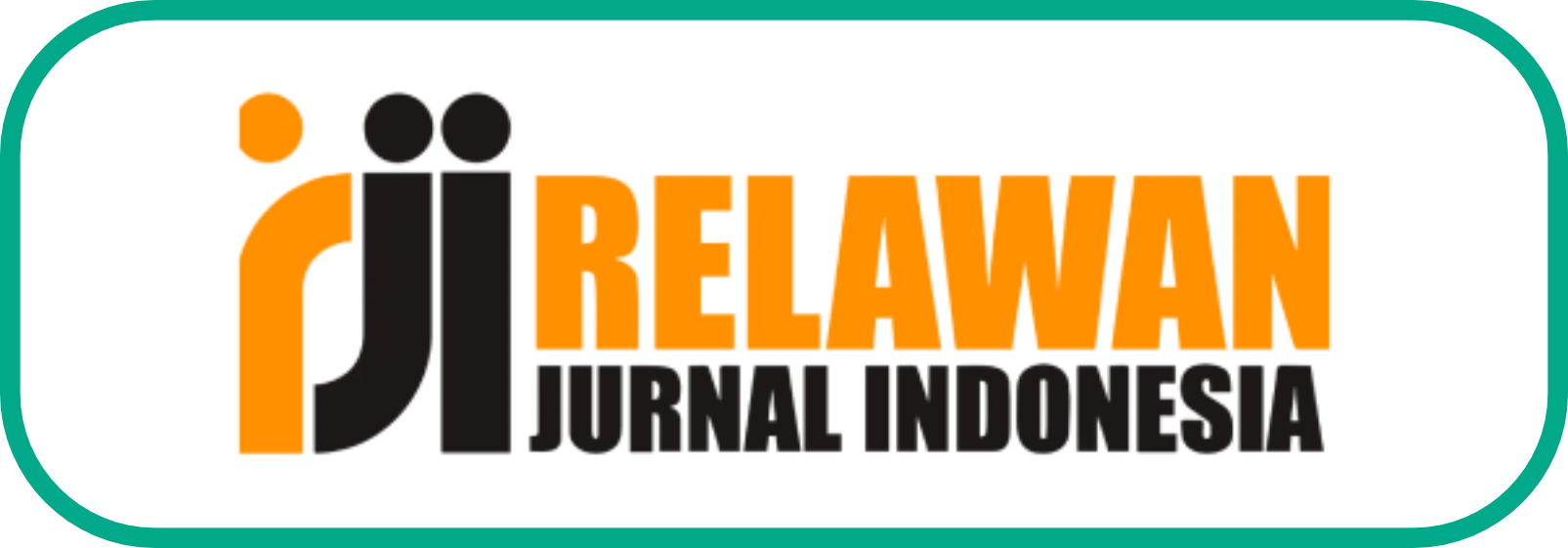ANALISIS PENGARUH LEARNING BEHAVIOR FROM FAILURE TERHADAP SUBJECTIVE WELLBEING DIMEDIASI OLEH ORGANIZATIONAL CRISIS PREPAREDNESS PADA UKM DI SUMATERA BARAT
Sari
Keywoed : Learning behavior from failure, organization crisis preparedness, subjective wellbeing, happiness
Teks Lengkap:
PDFReferensi
Antonacopoulou, E. P., & Sheaffer, Z. (2013). Learning in Crisis. Journal of Management Inquiry, 23(1), 5–21. doi:10.1177/1056492612472730
Bandura, A. (1977). Self-efficacy: Toward a Unifying Theory of Behavioral Changen. Psychological Review Vol. 84, No. 2, 191-215
Baumard, P., & Starbuck, W. H. (2005). Learning from failures: Why it May Not Happen. Long Range Planning, 38(3), 281–298. doi:10.1016/j.lrp.2005.03.004
Beutell, N. J. (2010). Work schedule, work schedule control and satisfaction in relation to work‐family conflict, work‐family synergy, and domain satisfaction. Career Development International, 15(5), 501–518. doi:10.1108/13620431011075358
Carmeli, A. (2007). Social Capital, Psychological Safety and Learning Behaviours from Failure in Organisations. Long Range Planning, 40(1), 30–44. doi:10.1016/j.lrp.2006.12.002
Carmeli, A., & Schaubroeck, J. (2008). Organisational Crisis-Preparedness: The Importance of Learning from Failures. Long Range Planning, 41(2), 177–196. doi:10.1016/j.lrp.2008.01.001
Cope, J. (2011). Entrepreneurial learning from failure: An interpretative phenomenological analysis. Journal of Business Venturing, 26(6), 604–623. htpps://doi:10.1016/j.jbusvent.2010.06.002
Diener, E., Emmons, R. A., Larsen, R. J., & Griffin, S. (1985). The Satisfaction With Life Scale. Journal of Personality Assessment, 49(1), 71–75.doi:10.1207/s15327752jpa4901_13
Eager, Bronwyn., Maritz, A., & Grant, S. (2015). Entrepreneurs and the stress-coping-strain process: how relevant are existing theoretical frameworks?
Hair Jr, J. F., Black, W. C., Babin, B. J., & Anderson, R. E. (2014).Multivariate Data Analysis (Seventh Ed). Harlow: Pearson New International Edition
Hosie, P., Sharma, P., & Kingshott, R. P. J. (2019). “Happy-performing managers” thesis. International Journal of Manpower
Jenkins, A. S., Wiklund, J., & Brundin, E. (2014). Individual responses to firm failure: Appraisals, grief, and the influence of prior failure experience. Journal of Business Venturing, 29(1), 17–33. doi:10.1016/j.jbusvent.2012.10.006
Kollmann, T., Stöckmann, C., & Kensbock, J. M. (2018). I can’t get no sleep—The differential impact of entrepreneurial stressors on work-home interference and insomnia among experienced versus novice entrepreneurs. Journal of Business Venturing. doi:10.1016/j.jbusvent.2018.08.001
Leung, A. S. M., Ha Cheung, Y., & Liu, X. (2011). The relations between life domain satisfaction and subjective well‐being. Journal of Managerial Psychology, 26(2), 155–169. https://doi:10.1108/02683941111102182
Lyubomirsky, Sonja., & Kurtz, Jaime. 2008. Positively Happy Routes to Sustainable Happiness A Six Week Course. London: British Library
Mahesa, Aditya Dion. & Rahardja, Edy. (2012). Analisis Faktor-Faktor Motivasi Yang Mempengaruhi Minat Berwirausaha. 1(1), 130-137.
Marques, J. F. (2017). Oh, what happiness! Finding joy and purpose through work. Development and Learning in Organizations: An International Journal, 31(3), 1–3.https://doi.org/10.1108/DLO-11-2016-0108
McCormick, J., & Barnett, K. (2011). Teachers’ attributions for stress and their relationships with burnout. International Journal of Educational Management, 25(3), 278–293.
Park, Sejin. 2016. Development and Validation of a Crisis Self-Efficacy Scale.
Pietrowsky, Reinhard., & Mikutta, Johannes. 2012. Effects of Positive Psychology Interventions in Depressive Patients—A Randomized Control Study. Psychology Vol.3, No.12, 1067-1073. https:// doi: 10.4236/psych.2012.312158
Politis, D., & Gabrielsson, J. (2009). Entrepreneurs’ attitudes towards failure. International Journal of Entrepreneurial Behavior & Research, 15(4), 364–383. doi:10.1108/13552550910967921
Pryce Jones, J. (2010). Happiness at Work: Maximizing Your Psychological Capital For Success. DOI: 10.1002/9780470666845
Seligman, Martin. E. P penerjemah: Eva Yulia Nukman. 2005. Authentic Happiness. Bandung: Mizan.
Shahab, Y., Chengang, Y., Arbizu, A. D., & Haider, M. J. (2018). Entrepreneurial self-efficacy and intention: do entrepreneurial creativity and education matter? International Journal of Entrepreneurial Behavior & Research. doi:10.1108/ijebr-12-2017-0522
Sekaran, U., & Bougie, R. (2016). Research Methods For Business (7th Edition). United Kingdom: Chichester, West Sussex.
Sekaran, U., & Bougie, R. (2013). Research Methods for Business : A Skill Building Approach (Seventh Ed). New York: Wiley.
Tucker, A. L., Edmondson, A. C. (2003). Why hospitals don’t learn from failures: organizational and psychological dynamics that inhibit system change, California Management Review 45(2), 55e72
Veenhoven. Ruut. 2008. Sociological Theories of Subjective Well-Being. The Science of Subjective Well-being.
Walsh, L. C., Boehm, J. K., & Lyubomirsky, S. (2018). Does Happiness Promote Career Success? Revisiting the Evidence. Journal of Career Assessment, 26(2), 199–219.http://dx.doi.org/10.1177/1069072717751441
DOI: https://doi.org/10.31869/mi.v14i2.1873
Article Metrics
Sari view : 326 timesPDF - 723 times
Refbacks
- Saat ini tidak ada refbacks.
##submission.copyrightStatement##
INDEXED BY :
Lembaga Penelitian & Pengabdian Masyarakat (LPPM). Universitas Muhammadiyah Sumatera Barat
Jl. Pasir Kandang No.4, Pasie Nan Tigo, Kec. Koto Tangah, Kota Padang, Sumatera Barat 25586.
Email : lppmumsb@gmail.com
 This work is licensed under a Creative Commons Attribution-ShareAlike 4.0 International License.
This work is licensed under a Creative Commons Attribution-ShareAlike 4.0 International License.
















